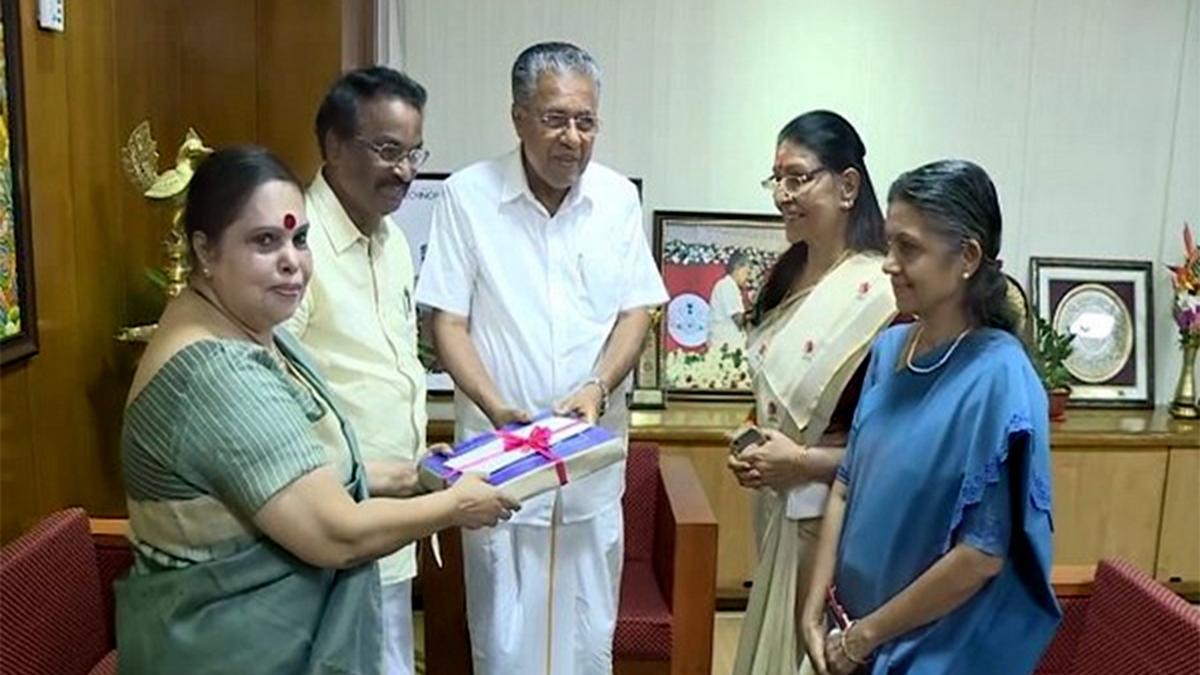
On Monday, August 19, 2024, a Division Bench of the Kerala High Court dismissed an appeal filed by actor Ranjini, also known as Sasha Selvaraj, who was challenging a single judge’s order that upheld the State Information Commission’s (SIC) directive to make public the Hema Committee’s report on the working conditions of women in the Malayalam film industry with specific, limited redactions. The Bench, comprising Acting Chief Justice A. Muhamed Mustaq and Justice S. Manu, advised the actor to approach a single judge by filing a writ petition if she wished to contest the SIC’s action further.
This decision followed the order of Justice V.G. Arun, who previously upheld the SIC’s directive while dismissing a writ petition filed by film producer Sajimon Parayil. Ms. Ranjini argued that her right to privacy might be compromised because the redaction of sensitive portions of the report was left to the discretion of the Information Officer. She clarified that her concern was not against the publication of the report per se but with the unilateral discretion given to the Information Officer to decide on the privacy of the individuals who had provided testimony to the committee.
Her contention also underlined the uncertainty faced by those who had given statements, as they were unaware of which parts of their testimonies would be redacted. Ranjini stated that she had a legitimate expectation of privacy based on the assurance that the testimony given under confidentiality would not be publicly disclosed in a manner that would violate her privacy. She argued that the State Information Commissioner should not have ordered the publication of the report without offering a hearing to the affected parties, including herself.
Further emphasizing her argument, Ms. Ranjini pointed out the constitutional rights in conflict; specifically, the Right to Information under Article 19(1)(a) and the Right to Privacy under Article 21, asserting that the latter should prevail over the former.
The Hema Committee, led by retired Kerala High Court Judge K.
. Hema, was established in response to the sexual assault of a prominent actor in 2017. The committee was tasked with investigating and making recommendations concerning the working conditions of women in the Malayalam film industry. The final report was submitted to the Kerala government on December 31, 2019, but had remained confidential due to the sensitive nature of the information contained within.
The SIC’s order to release the report came as a result of applications filed under the Right to Information (RTI) Act. The expectation was to release the report on Saturday, August 17, 2024. However, the release was postponed after the actor filed an appeal.
The public and the film industry had been eagerly awaiting the publication of the Hema Committee’s findings, anticipating revelations that could lead to significant reforms and protections for women working in the Malayalam film industry. Given the high-profile nature of the initial incident that led to the committee’s formation, the findings are expected to spark widespread discussion and possible policy changes.
While proponents of the report’s disclosure praised the court’s decision as a step toward transparency and accountability, Ranjini’s concerns about privacy reflect the broader tension between the public’s right to know and an individual’s right to confidentiality. The ruling prompts a reassessment of how such conflicting rights are balanced in legal frameworks, particularly in cases involving sensitive and potentially damaging information.
The court’s decision may set a precedent for similar cases involving public interest and personal privacy. It reinforces the SIC’s authority under the RTI Act but also calls for more robust mechanisms to safeguard individual privacy while ensuring transparency.
In conclusion, the Kerala High Court’s dismissal of actor Ranjini’s appeal marks a significant development in the ongoing discourse on transparency and privacy rights. The outcome signifies a judicial endorsement of the State Information Commission’s directives and reinforces the need for a balanced approach to handling sensitive information in the public domain. The implications of this decision will likely resonate within the Malayalam film industry and beyond, affecting how future information requests and privacy concerns are managed.












